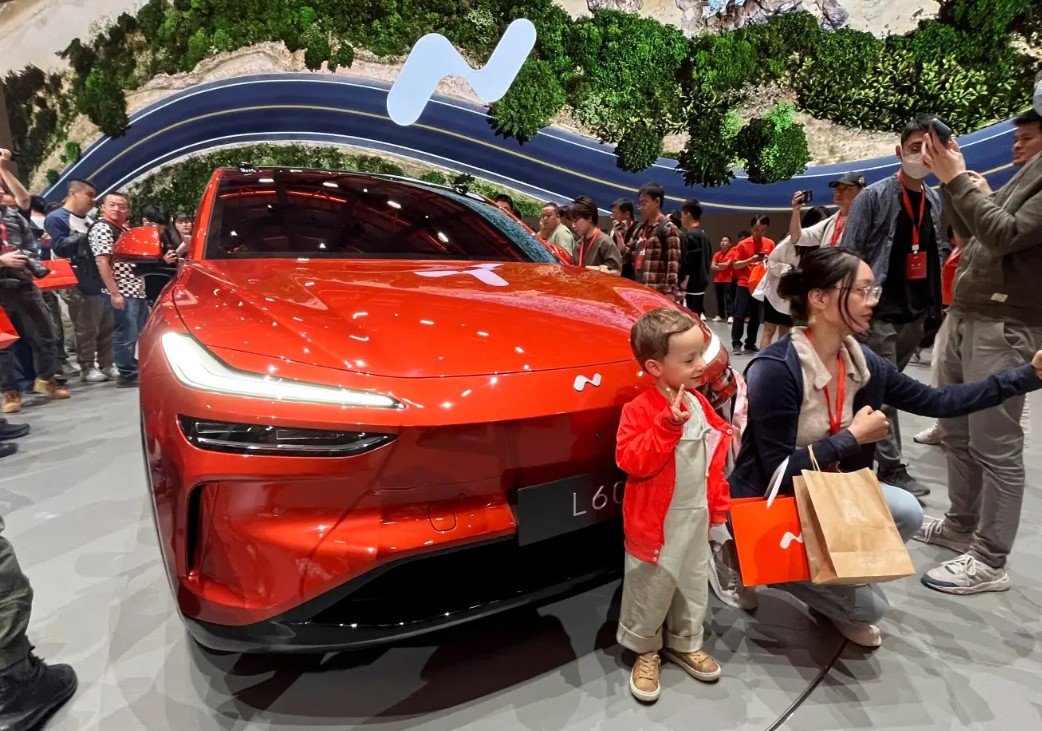In a bold statement at the opening of Mercedes-Benz’s first battery recycling plant, German Chancellor Olaf Scholz reassured the nation’s automotive industry that competition from China should not be feared. The plant, located in Kuppenheim, Germany, marks a key step in Germany’s push toward sustainable industry practices and signals a shift in its industrial policy.
Addressing Competition from China
Scholz directly addressed concerns over China’s growing dominance in the electric vehicle (EV) market. “Some say that China can do much better with electric motors than us,” Scholz stated, but quickly reassured German automakers that they are more than capable of competing on the global stage.
The chancellor reminded industry leaders that German companies have faced stiff competition before, particularly from South Korea and Japan, and have come out stronger. He further emphasized that Germany should continue its tradition of innovation without fearing foreign competitors.
- Key Points from Scholz’s Speech:
- German automakers can successfully compete with Chinese companies.
- There is no need for fear, as past competitors were similarly challenging.
- The country’s automotive industry remains resilient.
While some automakers have voiced concerns over rising competition from Chinese EV manufacturers, Scholz’s message was clear: Germany’s industry has the expertise and innovation to remain a leader.

Scholz Opposes Harmful Tariffs on Chinese EVs
Scholz also took a stand against the European Union’s tariffs on Chinese-made electric vehicles. He argued that tariffs could do more harm than good, particularly for German automakers, which depend on the Chinese market for a large portion of their sales.
“I’m against tariffs that harm us,” Scholz said, signaling that such measures should only be used in cases where European producers are clearly disadvantaged, such as in the steel industry. This position is in stark contrast to the EU’s decision to impose tariffs on Chinese-made EVs due to alleged unfair state subsidies.
- Scholz’s Position on Tariffs:
- Tariffs should only be imposed where necessary, such as in cases of dumping.
- The German automotive sector should not be harmed by unnecessary restrictions.
German automakers, including Volkswagen and Mercedes-Benz, have expressed concerns about these tariffs, as they heavily rely on the Chinese market for profits. Around one-third of Mercedes-Benz’s sales come from China, making it a critical market for the luxury carmaker.
Mercedes-Benz and the Shift Toward Sustainability
At the core of the event was Mercedes-Benz’s new battery recycling plant, which is a part of Germany’s broader industrial policy shift toward sustainability. The factory aims to extract valuable raw materials such as lithium, nickel, and cobalt from old electric car batteries, which will later be reused in the production of new batteries.
The plant’s carbon-emissions-free operation is a significant achievement for Mercedes and underscores Germany’s commitment to reducing its environmental footprint while pushing forward in the EV sector.
- Key Features of the Plant:
- Focuses on recycling crucial materials like lithium and cobalt.
- Aims to support the circular economy within the automotive sector.
- Reflects Germany’s focus on sustainable and innovative manufacturing.
As the automotive industry transitions to electric mobility, battery recycling is becoming a crucial component of maintaining both economic and environmental sustainability.
The Challenges Ahead
Despite these positive developments, the European automotive sector faces numerous challenges. High production costs, the shift toward EVs, and rising competition are creating a tough environment for European carmakers. Companies like Volkswagen have even started considering the closure of some plants in Germany.
Mercedes-Benz, for example, has seen a sharp decline in demand in China, particularly for its luxury S-Class models, with third-quarter sales dropping by 13% due to a real estate crisis in the country. While all Mercedes plants are currently operating at high capacity, the Sindelfingen factory, which produces the S-Class, remains underutilized.
Nevertheless, Scholz’s message at the event was one of optimism and resilience, calling on the German automotive industry to push forward confidently in the face of competition and to focus on innovation and sustainability.
















